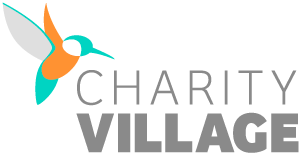Want to learn more about how to effectively communicate with your team? We’ve partnered with Keela and Imagine Canada to present a free webinar on May 20. Get more details and register here.
Your nonprofit spends countless hours communicating to the world about the good you do. But how many hours have you spent working on your internal communication?
Think about the last problem that arose on your team. If you take that problem and distil it down, miscommunication will be the cause the vast majority of the time.
For example, have you ever heard or said any of the following?
- Working with others takes up 90% of my day; I don’t have time to get anything done!
- Our biggest challenge right now is getting the right people.
- We have too many meetings!
If we learned to communicate more effectively, how much workplace friction could be alleviated?
What communication style are you?
How well you succeed at communicating is less about how skilled you are and more about the individual on the other side.
One person might want you to slow down and dive into the details, while another will be pulling their hair out, wishing you would just get to the point. Rather than taking a one-size-fits-all approach, it’s essential to learn which of the four communication styles they prefer.
This will unlock the door for better, more effective relationships with your colleagues, your Board of Directors, and even your family and friends.
Director
Directors are fast-talking, fast-acting, results-oriented folks. In their world, being decisive is the most important step in achieving a good outcome. They dominate meetings as they wish to get straight to the point. Don’t expect a Director to ask about your weekend. While you may see them as practical or tough, they see themselves as realistic and, most importantly, efficient.
How to Recognize a Director: They are fast-talking, impatient, direct, and to the point. They move quickly to action and tend to make direct eye contact.
Socializer
Socializers are people-oriented. This makes them great storytellers, motivators, and cheerleaders. Known in school as ‘the class clown,’ a Socializer will derail a meeting with a funny (but irrelevant recounting of their weekend). They are direct but far more people-focused than task-focused. A socializer will talk through a problem out loud and ask for everyone else’s opinions.
How to Recognize a Socializer: They smile, crack jokes, tell stories—often personal ones. They are excitable, fast-talking, comfortable to talk to, and tend to mirror others quite well.
Relator
Relators are empathetic, which makes them wonderful listeners and office caregivers. While they may not come across as decisive or speak up loudly in meetings, they often keep people working happily together in subtle ways. Relators prefer to fit in, not stand out. They try to avoid conflict, pleasing everyone they work with, and as a result, they can take on too much and feel overwhelmed.
How to Recognize a Relator: They listen well, wait for you to finish speaking, ask good questions, and tend to have a softer voice. They are patient and show genuine care.
Thinker
Unlike the other styles, it’s not about where you’re going with a Thinker. It’s all about how you get there. Thinkers hone in on the problem at hand—no detail is too small—sometimes to the exclusion of the bigger picture. This attention to detail means they tend to be perfectionists and may push deadlines to ensure the job is done right the first time. Thinkers may be less sensitive to people than other styles, focusing more on a task and how best to get it done.
How to Recognize a Thinker: They may sound unenthusiastic or monotone, speak with a lack of hand motions, or without eye contact. They ask a lot of questions.
Each communication style brings valuable strengths to a team. But the true value is learning how to work together across the four styles, leaning on individuals and their respective strengths while recognizing the areas where your style may frustrate others. By doing this, you’ll be able to communicate more effectively with your stakeholders, donors, and more.
Now that you know which communication style you are, join the workshop on May 20 to learn how to identify your team members’ communication styles, adjust yours and work better as a team.
Tasi Gottschlag is the COO of Keela, a comprehensive nonprofit software platform that gives you powerful, intelligent tools to manage your donors, mobilize your volunteers, market your nonprofit, and raise more money. Tasi has an MBA from SFU and built and sold her first SAAS tech start up in 2018. A true geek she is a passionate builder of businesses, loving all the moving pieces, intricate dynamics and systems that produce the results we see. In her free time, she loves to race sailboats, read inspiring business books and has two amazing daughters who ensure free time is kept to a minimum.











